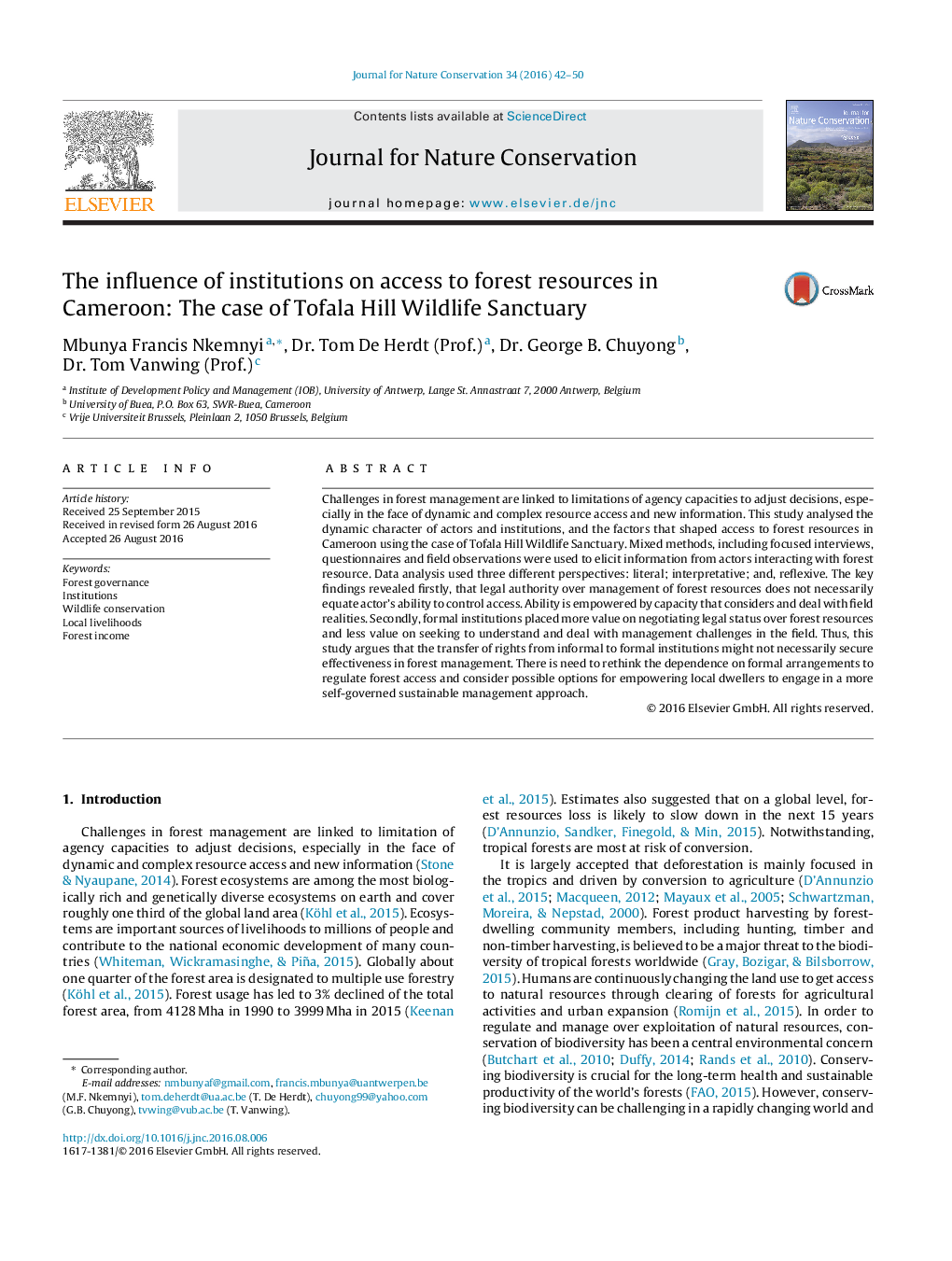| Article ID | Journal | Published Year | Pages | File Type |
|---|---|---|---|---|
| 4399706 | Journal for Nature Conservation | 2016 | 9 Pages |
Challenges in forest management are linked to limitations of agency capacities to adjust decisions, especially in the face of dynamic and complex resource access and new information. This study analysed the dynamic character of actors and institutions, and the factors that shaped access to forest resources in Cameroon using the case of Tofala Hill Wildlife Sanctuary. Mixed methods, including focused interviews, questionnaires and field observations were used to elicit information from actors interacting with forest resource. Data analysis used three different perspectives: literal; interpretative; and, reflexive. The key findings revealed firstly, that legal authority over management of forest resources does not necessarily equate actor’s ability to control access. Ability is empowered by capacity that considers and deal with field realities. Secondly, formal institutions placed more value on negotiating legal status over forest resources and less value on seeking to understand and deal with management challenges in the field. Thus, this study argues that the transfer of rights from informal to formal institutions might not necessarily secure effectiveness in forest management. There is need to rethink the dependence on formal arrangements to regulate forest access and consider possible options for empowering local dwellers to engage in a more self-governed sustainable management approach.
